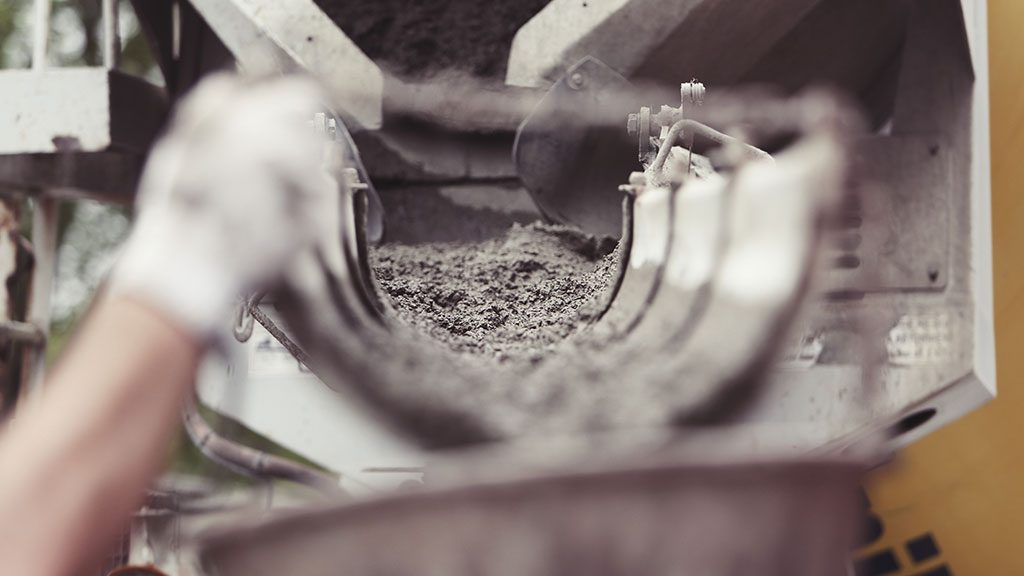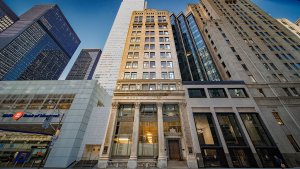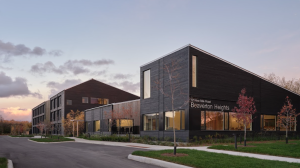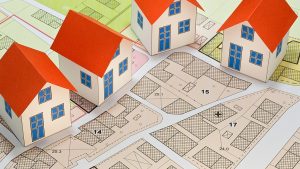Proposed amendments to the City of Toronto’s noise bylaw could restrict concrete work for the construction of highrise buildings and housing industry stakeholders believe it will create more barriers to the sector’s ability to build the city’s affordable housing supply.
A noise bylaw review, brought forward by the executive director of municipal licensing standards at a recent committee meeting, removes a blanket noise bylaw exemption in the current bylaw for continuous concrete pouring and large crane work, instead restricting builders from performing that work before 7 a.m. and after 7 p.m. on weekdays. The exemption could be removed by council at the April 16 meeting and the proposed changes are slated to take effect Oct. 1.
“They have intentionally targeted new housing without any supporting justification,” said Richard Lyall, president of the Residential Construction Council of Ontario, adding the amendments would only apply to private sector projects, not government work.
“All this is going to do is delay the industry’s ability to supply housing and it’s going to increase costs. It will serve absolutely no other purpose. This is really another example of where the industry is struggling to comply with this plethora of rules applications barriers and permits to actually get the buildings built. This is an exercise in creating a solution for a problem that really doesn’t exist.”
A City of Toronto spokesperson said the amendments are meant to ensure companies consider noise management and mitigation before projects are underway. The current bylaw contains an exemption, which has been in place since 2007, that concrete work cannot be interrupted once the operations have commenced. Under the proposed amendments, companies that wish to undertake continuous concrete pouring and/or large crane work outside of the permitted hours, can apply for a noise exemption permit which would be at the discretion of city staff.
“During the permit process, Municipal Licensing and Standards may request a noise mitigation plan,” reads the statement. “For construction, this may include a list of equipment to be used and noise mitigation efforts such as sound barriers. Permits can be obtained before work begins and cover an extended period of time.”
In addition to impacting housing affordability, removing the exemption will also threaten close to 7,000 jobs in the highrise forming sector and other trades, said Jason Ottey director of government relations for LIUNA Local 183.
“The city is throwing the industry in a lot of turmoil and putting us into a process that, at the end of the day, is not very clear and can jeopardize a lot of jobs,” explained Ottey. “This exemption will have a devastating impact on highrise construction.”
Ottey said the city needs to have a construction specific working group so issues are not lumped in with the general issues and amendments on noise.
“We have been consistent in our position that we are willing to work with the city to come up with a strategy or plan that helps communicate to residents about the implications of the work that we are doing. We told the city you have to understand that this is a necessary feature of highrise construction, it’s not something that we can perform without the ability to go beyond permitted hours,” said Ottey. “We have asked the city for more time to come up with a solution that is more workable for the industry.”
One of the biggest issues for Lyall is once you start a concrete pour you have to finish it. The amendments could delay project schedules for six to 12 months including anticipated occupancies for up to 32,000 new condo and rental units, he noted.
“The nature of concrete is once you start a pour you’ve got to finish it. You have to finish the concrete and sometimes you get delayed through no fault of your own and no fault of the project planners,” said Lyall. “We’re going to lengthen the time it takes to get projects done and we’re going to increase the cost because time is money. This isn’t the only thing we’re dealing with that is a barrier to housing.”
Lyall said the data in the staff report does not support the proposed changes. A poll by the City’s Municipal Licensing and Standards indicates 66 per cent of residents say they do not have concerns about noise in the city but of the residents that do have concerns, only eight per cent specifically mentioned construction noise.
“One of the problems with the staff report is that they have some data on construction noise complaints but they don’t differentiate as to the source of the complaint,” Lyall explained. “The amount of complaints hasn’t gone up, it’s pretty much been at the same level but we know over the last three or four years we have really ramped up highrise construction. So, if you look at it that way, there has been a dramatic increase in construction but complaints have not increased.”
In the statement, the city says construction-related noises are “one of the main sources of noise complaints to the City, representing one-third of all general noise complaints. The goal of the amendment is to work collaboratively with the construction industry to support their work, while balancing the needs of residents.”











Recent Comments